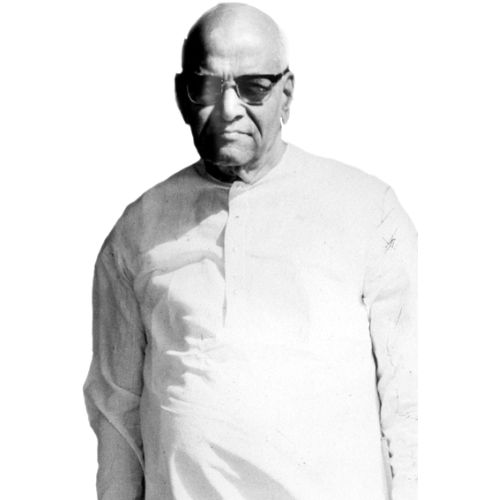Early Life:
Ramnath Goenka was born on 3rd April 1904 in Darbhanga, Bihar. At a young age, he was sent to Madras to work with his maternal uncle. Thereafter he took a job as a dispatch vendor for the Free Press Journal.
Role in India’s Independence Movement:
In the 1930s Goenka was associated with Gandhi and the Indian freedom struggle. In 1934, at the age of 30, inspired by Gandhi’s call for a national newspaper, he acquired shares in the Indian Express and two years later obtained complete control of the newspaper.
The Indian Express became a voice against British rule and went on to become the largest English national daily. As a response to the Quit India movement and British India’s gag order on the press, the Indian Express ran a piece ‘Heart strings and Purse strings’ where Goenka announced the shutdown of the newspaper and declared:
“We cannot publish news relating to our leaders, to the Congress movement, or relating to anything…not even facts which vitally affect the community unless it is contained in a government communique or in a report from our registered correspondent, blessed by a district magistrate. It would be nothing less than fraud on the public for us to send out a paper containing just that and nothing more…the hard fact of the situation is that if we went on publishing, The Indian Express may be called a paper, but cannot be called a newspaper.”
Role in Constitution Making:
Goenka was elected to the Assembly from Madras on a Congress party ticket. He did not actively participate in the proceedings of the Assembly, although he did make an important intervention relating to the taxation of newspapers.
Later Contributions:
Goenka continued heading the Indian Express after Independence. A day after the emergency was imposed, the paper published two blank columns in its front page as a mark of protest. It went on to successfully challenge the pre-censorship order of the Indira Gandhi in 1976. Thereafter, it was critical in bringing to light the impact of the emergency on institutions and public life.
The Ramnath Goenka Memorial Foundation presents annual Ramnath Goenka Excellence in Journalism Awards. These Awards recognise outstanding journalistic contributions and are considered prestigious in the journalism community.
Ramnath Goenka died on 5th October 1991 in Mumbai.
On 9th September 1947, Goenka made an important intervention regarding Entry 88 and 88A of the Draft Constitution (Entry 92 and 92A of the Constitution of India, 1950) which deals with levy of tax on press. He criticized its inclusion and argued that no other constitutions contain an entry for taxing newspapers.

